AliExpress is one of the most popular platforms for buying affordable products from China, but it’s also home to a fair share of shady sellers and clever scams.
While many buyers have positive experiences, others have lost money to fake tracking numbers, counterfeit items, or refund tricks.
So, is AliExpress a scam? No, but not every seller on the site is trustworthy.
In this guide, we’ll break down 10 of the most common AliExpress scams in 2025 and show you exactly how to avoid them.
Whether you’re a casual shopper or a dropshipper running an online store, these tips will help you stay protected and shop with confidence.
Key Takeaways
- Verify seller legitimacy and reviews to ensure a safe purchase.
- Be cautious with payment methods and dispute processes to protect your money.
- Use AliExpress buyer protection features for added security.
Is AliExpress Legit?
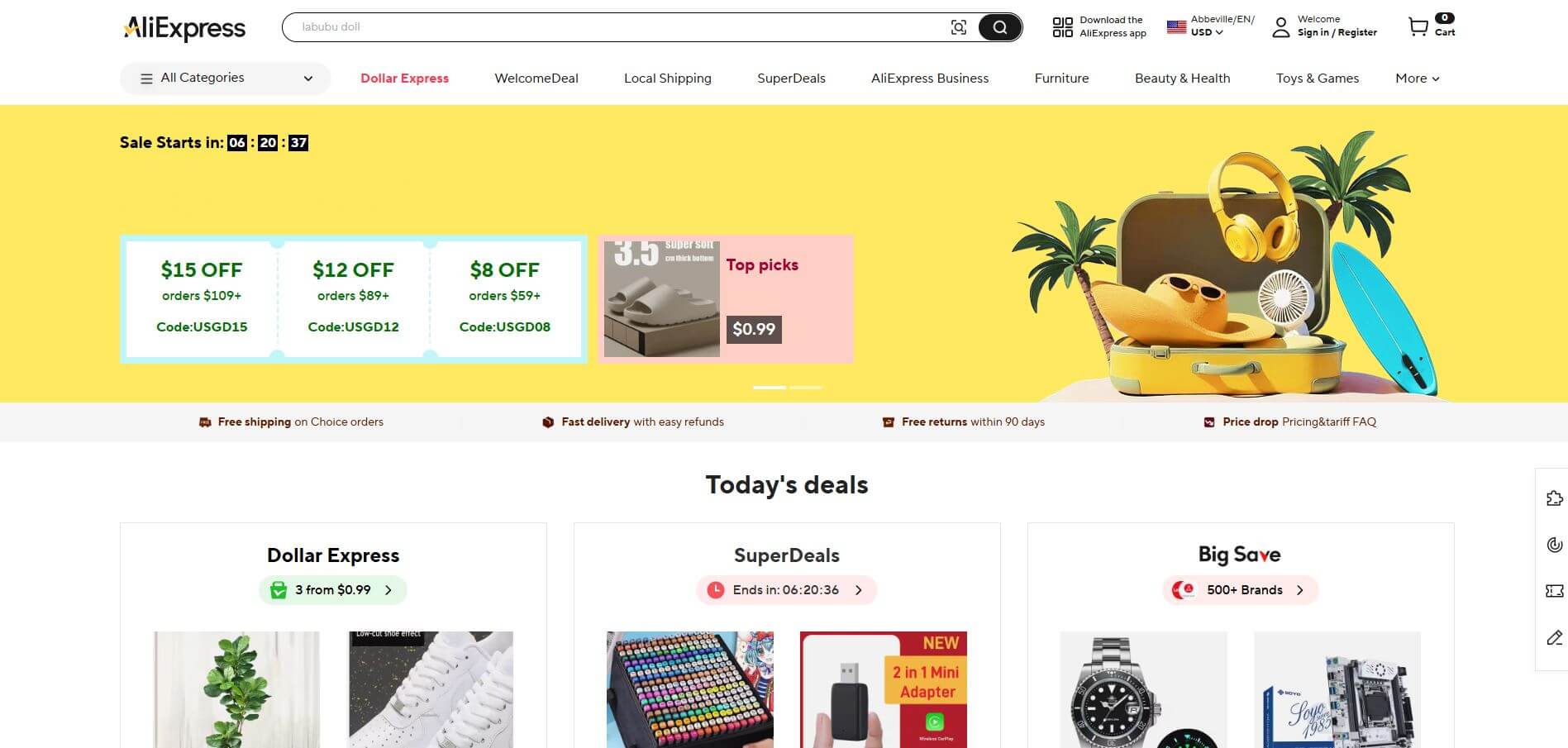
Yes, AliExpress is a legitimate online marketplace.
It’s owned by the Alibaba Group, one of the largest e-commerce companies in the world.
Millions of people shop on AliExpress every year, and many use it to run successful dropshipping businesses.
That said, like any open marketplace with thousands of independent sellers, your experience will depend on who you buy from.
Here’s what makes AliExpress legit, but also what to watch out for:
Buyer Protection Program
AliExpress offers buyer protection that covers you if an item doesn’t arrive, arrives damaged, or isn’t as described.
You can open a dispute and request a refund, but be careful not to close the dispute too early. Once you do, it’s very hard to reopen the case.
Seller Verification and Ratings
Sellers must be verified before listing products, and AliExpress shows clear feedback scores and reviews from past buyers. Always check a seller’s history, ratings, and how they respond to complaints before placing your order.
Platform Reputation
AliExpress isn’t a scam site, it’s been around for over a decade and has served millions of users.
But it does host some dishonest sellers. That’s why it’s important to research every product and supplier, especially if you plan to resell or dropship.
What Is an AliExpress Scam?
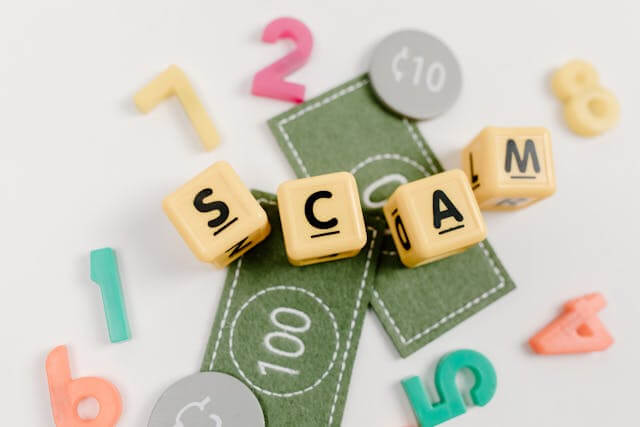
An AliExpress scam refers to any dishonest tactic used by certain sellers on the platform to trick buyers, whether by misrepresenting a product, failing to deliver it, or exploiting loopholes in the dispute process.
While AliExpress itself is a legitimate platform, it’s open to third-party sellers from all over the world. That means you can find everything from reliable manufacturers to shady resellers operating under the same roof. Most issues arise not because the platform is a scam, but because some sellers abuse the system.
Here’s how AliExpress scams typically work:
- A seller lists a fake product photo or inflated specs to mislead you.
- They may ship a completely different item, or nothing at all and delay responses until your buyer protection window closes.
- Some sellers disappear or open new stores once bad reviews start piling up.
- Others manipulate tracking info to show false delivery updates.
It’s important to remember: AliExpress doesn’t scam you, but sellers on the platform can if you’re not careful.
That’s why dropshippers and shoppers alike need to do their homework. Read reviews, inspect product photos carefully, and use secure payment methods.
In the next section, we’ll break down the most common AliExpress scams you should be aware of in 2025, so you can spot the red flags before they cost you money.
10 Common AliExpress Scams You Need to Know in 2025
AliExpress has grown into one of the most popular global marketplaces, but with that popularity comes risk. Some sellers exploit loopholes or manipulate trust systems to scam unsuspecting buyers.
Below are ten of the most common scams you might face on AliExpress in 2025, and how to avoid them.
1. Off-Platform Payment Scam
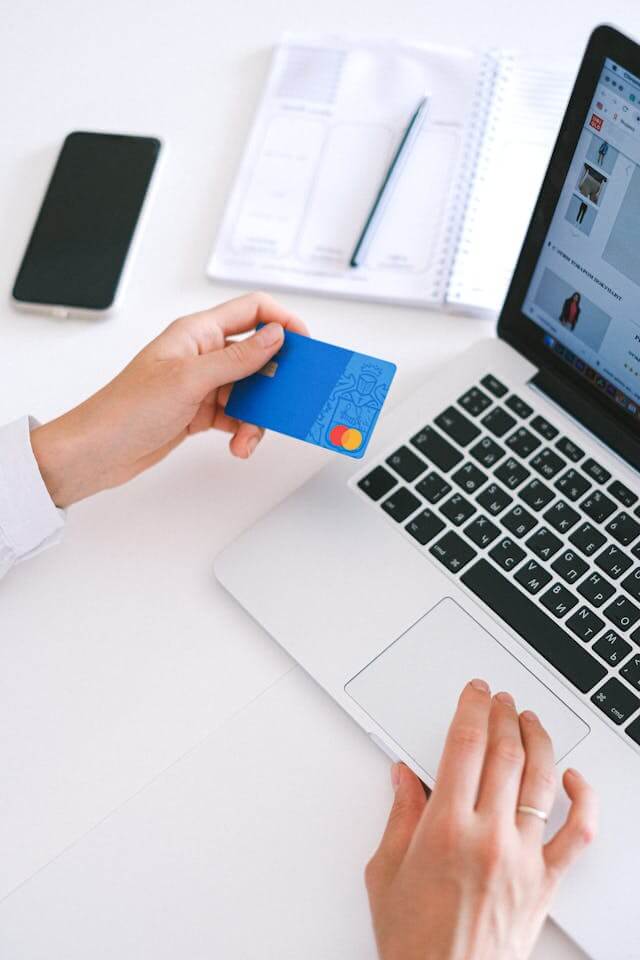
One of the most common scams on AliExpress is when a seller tries to lure you into paying outside the platform. This is called an off-platform payment scam, and it immediately strips away your buyer protection.
How it works:
- A seller may ask you to pay via PayPal and then insist you close any open disputes on AliExpress before sending the refund. In these cases, you may never get the refund once the dispute is closed.
- You may receive emails or messages that seem like they’re from AliExpress, asking for payment details to release shipments. These can lead to fake websites aiming to steal your information.
How to protect yourself:
- Always pay within AliExpress. Their secure system holds funds in escrow until you confirm receipt of your order.
- Never send payments via PayPal or bank transfer outside the platform. If a seller insists, consider it a red flag.
- Ignore emails that ask for payment information. Only interact with sellers through AliExpress’s internal messaging system.
- Check seller ratings and history. Trust sellers with positive reviews and long-standing records.
Staying within the platform is the only way to ensure AliExpress can intervene if something goes wrong. Once you step outside their system, you’re on your own.
2. Tracking Number Scam
The tracking number scam is a sneaky tactic some AliExpress sellers use to make it look like your item was delivered, when it wasn’t.
Here’s how it works:
After you place an order, the seller quickly provides a tracking number that seems valid. But instead of tracking your package, the number is tied to a different order that’s being delivered elsewhere.
You might see a “Delivered” status even though nothing ever arrives at your address. By the time you realize the item wasn’t meant for you, the buyer protection window may have expired.
Red flags to watch for:
- Immediate Tracking Number: You get a tracking number too quickly, often immediately after purchase.
- Mismatched Locations: The delivery is confirmed to an unrelated address, sometimes hundreds of kilometers away.
- No Seller Communication: The seller becomes unresponsive when you inquire about the tracking details.
How to avoid tracking number scam:
- Only buy from trusted sellers with a solid history and high ratings.
- If the price seems too good to be true, it might be a red flag.
- Use AliExpress’s built-in dispute resolution if you suspect a fake tracking number. Never confirm delivery until you’ve received your package.
3. Extra Money Scam
When shopping on AliExpress, watch out for the Extra Money Scam. This is where sellers ask for more money after you’ve already paid. Here’s how it typically unfolds:
- You make a purchase at an agreed price.
- The seller contacts you claiming shipping costs more than expected.
- The seller requests additional payment outside the AliExpress platform.
Remember, legitimate sellers bear all costs, before final purchase, including shipping costs.
Here are signs to stay vigilant:
- Unexpected Messages: Be cautious if a seller messages asking for extra fees post-purchase. This is a red flag.
- Sob Stories: Sellers might try to guilt you into paying more with a story. AliExpress policies protect you from such tactics.
- Off-site Transactions: Never agree to send additional money through external payment methods.
To guard yourself, consider:
- Keep all communication within AliExpress – This helps you stay covered under buyer protection.
- Ignore any requests for additional payments – Legitimate sellers won’t ask for more money after checkout.
- Check seller reviews – Look for reports of similar behavior from past buyers.
- Report the seller – If you’re pressured for more money, file a dispute and let AliExpress handle it.
Don’t let a shady seller exploit your trust. Stick to platform rules, and you’ll stay protected.
4. Fake Compliance Certifications
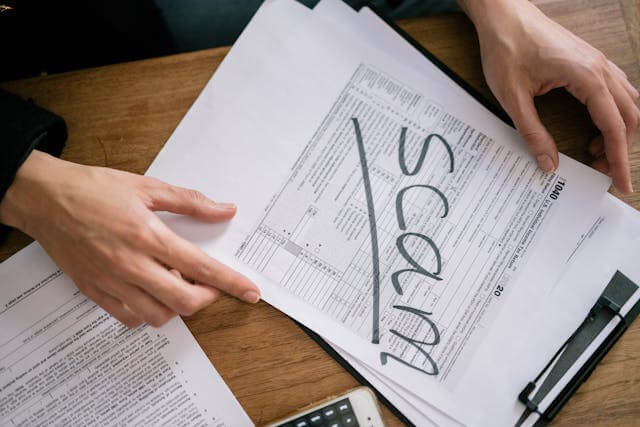
When shopping on AliExpress, you might come across products boasting certifications like RohS, CE, and FDA. These are meant to reassure you of an item’s safety and quality.
However, some dishonest sellers exploit your trust by flashing fake compliance certifications.
Common red flags:
- New sellers with big claims – A recently opened store offering “FDA-certified” or “RoHS-compliant” electronics should raise concerns.
- Poor labeling or inconsistent logos – Genuine CE marks follow a precise design. Fake ones often look oddly spaced or off-center.
- Too-good-to-be-true pricing – A $5 “CE-certified” electronic product is likely using the badge as bait.
How to verify and protect yourself:
- Ask for documentation – Legitimate sellers should be able to provide test reports or certificates from recognized labs.
- Compare product images – Cross-check with reputable brands or suppliers for discrepancies in logos, seals, or language.
- Search certification databases – Some international bodies allow you to verify certificate numbers online.
Buyer Tip: If you’re dropshipping or importing products in bulk, fake certifications can lead to customs issues, product recalls, or worse, legal liability. Always do your homework.
5. Closing a Dispute and Resending Scam
When shopping on AliExpress, you might bump into a tricky situation known as the Closing a Dispute and Resending Scam.
If you open a dispute due to issues like not receiving your product, the seller may contact you with a tempting proposal. They might ask you to close your dispute, promising to send a new product or issue a refund.
The catch here is that once you close the dispute, your buyer protection may expire, and you could end up with nothing.
Here’s how it happens:
- You open a dispute due to issues with your order.
- The seller contacts you promising a resolution,such as resending the item, if you close the dispute.
- Trusting the seller, you close the dispute.
- Later, you find that you can’t reopen the dispute, and the seller becomes unresponsive.
Signs to watch for this type of scam:
- The seller is very insistent that you close the dispute quickly.
- You receive promises of additional benefits or rewards for closing the dispute.
- There’s no official confirmation from AliExpress regarding the seller’s promises.
To avoid falling for this scam, always remember:
- Never close a dispute before receiving a resolution that you’re satisfied with.
- Ensure that any agreement is documented and endorsed by AliExpress itself.
- Be aware of the buyer protection period and do not let it expire while your issue is unresolved.
6. Incorrect Shipping Method
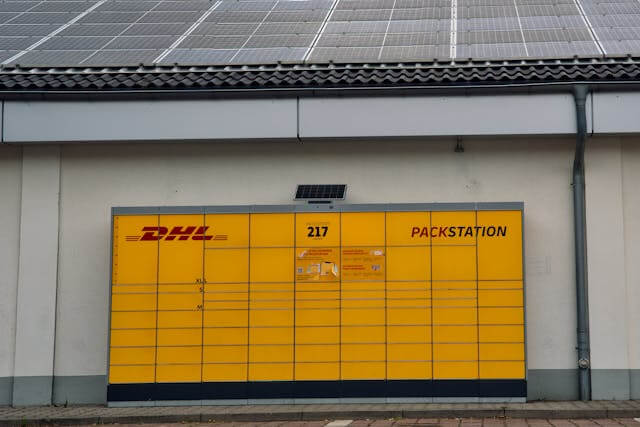
When shopping on AliExpress, paying attention to shipping details is crucial. There’s a scam that involves the incorrect shipping method.
You might select and pay extra for a specific shipping method because it’s faster or provides better tracking. But, some sellers may send your package using a slower or cheaper option.
Here’s how to spot this scam:
- Check the shipping method after your item is dispatched. It should match what you paid for.
- Monitor the delivery time. If it’s taking longer than promised, there might be an issue.
- Examine the tracking information. If it’s less detailed than expected, the seller might have switched services.
Take these steps if you have the risk to fall for this scam:
- Once your item arrives, confirm the shipping method used.
- Contact the seller if there’s a discrepancy between what you chose and what was used.
- If the seller isn’t cooperative, file a dispute with AliExpress to potentially get a refund for the difference in shipping cost.
Keep in mind, some sellers may promise to ship your item quickly but then fail to do so. While Aliexpress policies are in place to protect you, always remain vigilant to ensure you get the service you paid for.
7. Resend for $0.01” Scam
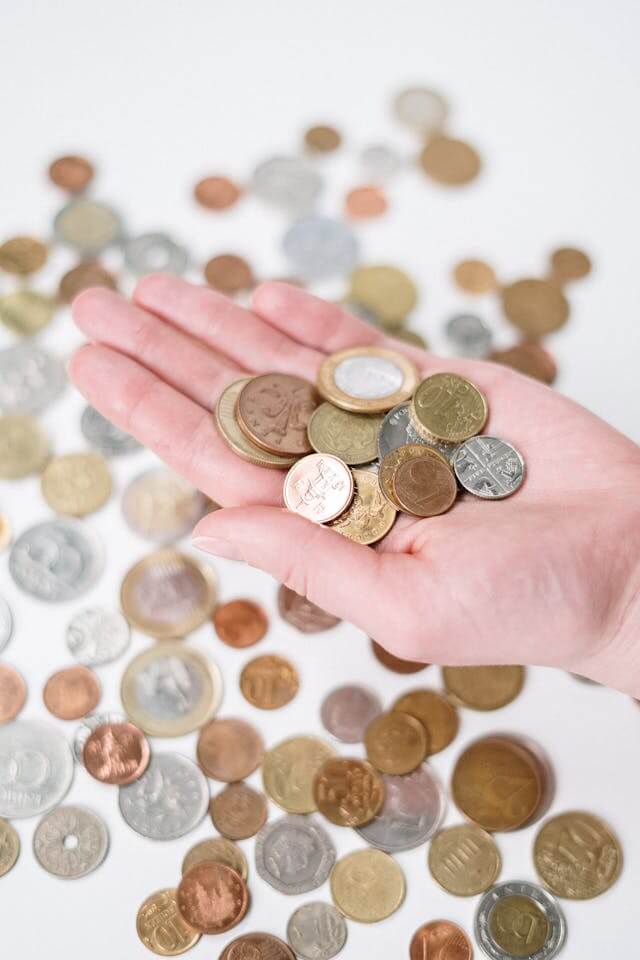
Beware of the Re-sending Package With a New Order scam when purchasing on AliExpress. In this scenario, a seller might approach you with what seems like a helpful offer.
Here’s how it unfolds:
- Seller Proposes Resend: After a dispute or issue with the original order, the seller suggests sending you the item again.
- New Order for $0.01: You’re instructed to place a second order for the same product but at a drastically reduced price, usually $0.01.
- New Tracking Code: The seller provides you with a new tracking number once the sham new order is shipped.
- Buyer Protection Expires: With your attention on the new order, the buyer protection on your original order may lapse without you realizing it.
These steps can lead to losing your money as well as any buyer protection you originally had. To avoid falling victim to this scam, keep in mind:
- Always Check Seller Ratings: High ratings and positive feedback can indicate a trustworthy seller.
- Track Buyer Protection: Keep an eye on the countdown and never let it expire before resolving your issues.
- Beware of Unusual Requests: Asking for a new order at a price that is too good to be true should raise a red flag.
If a seller genuinely wants to resend your order, they should do it without requiring a new transaction. Always insist that any resolution stays within the official dispute process.
8. PayPal Refund Scam
When you shop on AliExpress, you might run into the PayPal refund scam, a common deceit that can cost you money if you’re not careful. Here’s how it typically unfolds:
- Issue with Your Order: Imagine you’ve bought an item but there’s a problem. The product might be faulty, not as described, or it never arrived at all.
- Open a Dispute: Your next step is to open a dispute on AliExpress for your money back.
- Seller’s Promise: The seller contacts you promising a full refund through PayPal, but there’s a catch. They ask you to close the dispute first.
- The Trap: If you close the dispute and provide your PayPal details, the refund doesn’t come. Worse still, you now can’t reopen the dispute on AliExpress, leaving you out of pocket.
Here’s what you need to watch for to avoid falling victim:
- Promises of PayPal refunds that hinge on you shutting the dispute on AliExpress first.
- A sense of urgency from the seller pushing you to act fast or lose out on your refund. They might even offer extra money or goods to entice you.
- Requests for your PayPal information before giving you the refund.
Remember, never close a dispute until the money is safely in your account or the issue is resolved. If you’re discussing refunds through PayPal, check AliExpress’s guidelines on payment to be sure you’re following the correct process.
9. Disappearing Seller Scam
Some sellers on AliExpress aren’t in it for the long haul. The Disappearing Seller Scam involves a seller who collects payment and then suddenly deletes their account or becomes unreachable, leaving you with no product, no communication, and no clear path to a refund.
How this scam typically plays out:
- You come across a product listed at a suspiciously low price.
- The seller’s store appears new, with few or no reviews.
- You place an order, make the payment, and shortly after, the seller’s profile vanishes or the listing disappears.
- There’s no shipping update, and the seller becomes completely unresponsive.
Red flags to watch for:
- New sellers with no history or minimal ratings.
- Too-good-to-be-true prices, especially for high-demand items.
- Sellers asking to move the transaction off-platform, or rushing you to place an order quickly.
- Lack of response or sketchy communication right after purchase.
How to avoid this scam:
- Stick to established sellers with plenty of verified reviews and order history.
- Use AliExpress’s payment system to ensure you’re covered by Buyer Protection.
- Don’t rush into a purchase just because a seller is pressuring you. Scammers thrive on urgency.
If a seller disappears after you’ve made a purchase, your best shot at recovery is to open a dispute immediately within the Buyer Protection window. Once that expires, you’re likely on your own.
10. Friend Account Payment
When shopping on AliExpress, you might encounter the Friend Account Payment scam. It’s a tactic scammers use to sidestep AliExpress’s protection.
They may ask you to transfer money directly to a friend’s bank account instead of using the platform’s secured payment methods.
Here’s how it generally unfolds:
- After you commit to buying an item, the seller asks you to transfer funds to a friend’s or an alternative account.
- They may promise you benefits like discounts or faster shipping for using this method.
Be cautious! This is a red flag. AliExpress offers an escrow service called Alipay which safeguards your payments until you confirm receipt of your order.
Signs to look out for:
- Unusually Low Prices: Often too good to be true.
- Direct Payment Requests: Outside the AliExpress platform.
- Pressure Tactics: Urging you to bypass the usual checkout process.
Remember, once you pay outside of AliExpress, they can’t help you if something goes wrong. Stick to secure payment methodsthrough AliExpress itself to protect your money.
If a seller persistently requests alternative payments, consider it a huge warning sign.
Tips to Avoid GettingScammed on AliExpress
1. Check Seller Credentials.
Always review the AliExpress buyer feedback before making a purchase. A seller with a high number of positive reviews is typically more trustworthy.
2. Use Secure Payments.
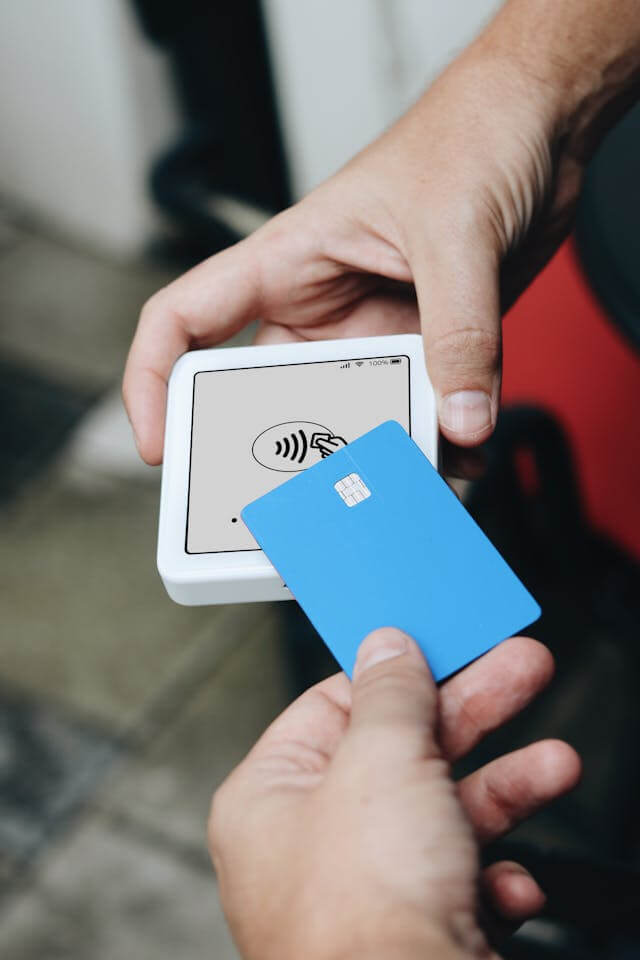
Make your transactions within AliExpress using their secure payment system. This ensures that your payment is protected, and you’re less likely to be a victim of fraud.
3. Stay On-Site.
Keep all communications and transactions on AliExpress. Avoid sellers who suggest moving the conversation or payment off the platform.
4. Understand Buyer Protection.
Familiarize yourself with AliExpress’s buyer protection policy. Knowing the timeframe for opening a dispute can help protect your purchase.
5. Set Realistic Expectations.
Be mindful of pricing that seems too good to be true. Extremely low prices might be a sign of counterfeit or low-quality products.
6. Verify Product Authenticity.
If it’s a brand name item, take the time to compare the listing with the official brand’s specifications to ensure authenticity.
7. Documentation.
Keep a record of all transactions, messages, and product descriptions in case you need to open a dispute later.
8. Shipping and Tracking.
Select a shipping method that includes tracking. This way, you can monitor your package’s journey and be alerted to any unusual delays.
What to Do if You Get Scammed on AliExpress?
Getting scammed on AliExpress can feel frustrating, but don’t panic. If you act quickly and follow the right steps, you often can get your money back.
Here’s what to do:
1. Don’t Confirm Delivery

If you haven’t received your order, or it’s fake, damaged, or completely wrong, don’t click “Confirm Receipt.”
AliExpress only releases the payment once you confirm, so this is your biggest leverage.
2. Contact the Seller First
Reach out to the seller through AliExpress chat. Some issues are honest mistakes (like shipping errors), and good sellers will resolve them quickly.
Keep your messages:
- Polite and clear
- On the AliExpress platform (not WhatsApp or email)
- Backed by photos or videos if needed
3. Open a Dispute
If the seller is unhelpful, or ghosts you, open a dispute before your buyer protection ends.
Go to: “My Orders” > Find the item > Click “Open Dispute”
You’ll be asked to choose between:
- Full refund
- Partial refund
- Or Return + Refund
Be honest, upload proof (screenshots, tracking issues, product photos), and explain the situation clearly.
4. Escalate to AliExpress
If the seller rejects your dispute or offers a shady deal (like asking you to close the dispute), don’t accept it.
Instead, click “Escalate Dispute” to let AliExpress step in. Their team will review your case and make a final decision.
5. Keep Proof of Everything
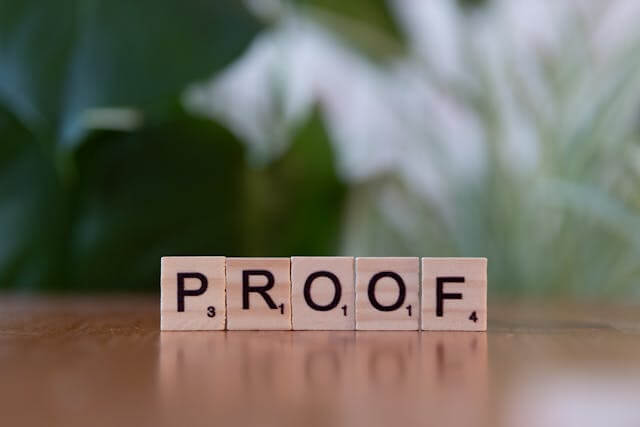
- Order confirmation
- Chat history
- Tracking info
- Photos or videos of the product
This helps support your case and increases your chances of getting a refund.
6. Leave an Honest Review
Once your case is resolved, leave a review to warn others. Be factual and fair, it helps future buyers avoid the same scam.
7. Report the Seller
If the seller was truly deceptive (asked for off-site payment, faked tracking, etc.), report them through the platform. You may not hear back, but reports help AliExpress remove bad sellers.
How to Choose a Reputable Supplier on AliExpress
When shopping on AliExpress, the reliability of the supplier is paramount. Here’s a straightforward guide to help you identify trustworthy sellers and protect your purchases.
1. Check Seller Ratings.

Start by looking at the seller’s overall rating. A higher rating generally indicates a more reliable seller. Look for sellers with ratings close to 100%, as this reflects a consistent record of customer satisfaction.
2. Read Customer Feedback.
Go through the feedback section of the supplier’s page. Previous customers’ experiences can provide valuable insights into the quality of the product and seller reliability. Take note of comments regarding shipping times, product quality, and customer service.
3. Evaluate Seller Verification.
AliExpress verifies certain sellers to distinguish them as trustworthy. These verified sellers have undergone additional checks to confirm their business authenticity.
Look for badges like “Top Brand” or “Verified Seller” on their profile for added reassurance.
4. Sift Through Reviews.
Product reviews often include customer photos and detailed accounts of their experiences. These reviews can help gauge whether products meet your expectations and confirm if the seller is trustworthy.
5. Examine Trust Signals.
Trust signals further validate a seller’s legitimacy. These can include the store’s age, number of followers, and number of products sold. More established stores with a large following and high sales volume can be more reliable.
6. Assess Communication.
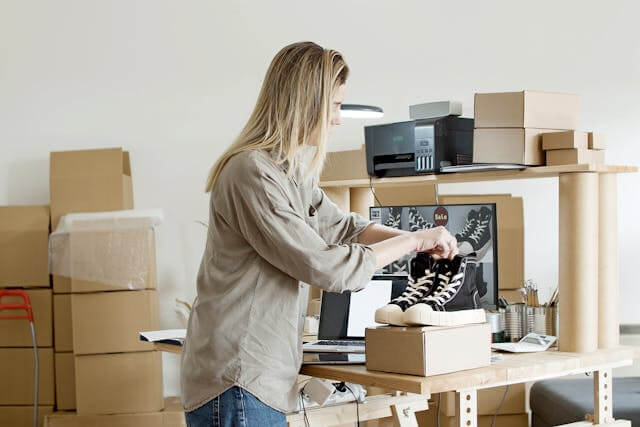
Before making a purchase, reach out to the seller with any questions. Their responsiveness and willingness to provide information can indicate their customer service quality.
Frequently Asked Questions
Can You Get Scammed on AliExpress?
AliExpress is a legitimate platform used by millions, but like any large marketplace, it has its share of dishonest sellers.
Scams can range from fake tracking numbers and counterfeit certifications to requests for off-platform payments or false promises of refunds.
However, AliExpress has a strong buyer protection system in place:
- Payments are held in escrow until you confirm receipt.
- You can open disputes for undelivered, damaged, or misrepresented items.
- The platform offers refunds or returns in many cases.
You’re most at risk when:
- You send money outside the platform (e.g., PayPal or direct transfers).
- You fall for unrealistic deals (e.g., $100 items listed for $2).
- You confirm delivery before receiving the item.
If you stick to trusted sellers, use AliExpress’s payment system, and avoid pressure tactics, you’re unlikely to get scammed. And if something does go wrong, there are steps to help you recover your money.
Is AliExpress Safe to Buy From?
Absolutely, AliExpress is a safe platform for online shopping, with a comprehensive buyer protection program that covers your purchases from click to delivery.
It’s important to be mindful of seller ratings and customer feedback before purchasing to ensure the best experience.
Why Are Prices on AliExpress Lower than Other Online Retail Platforms?
AliExpress products are often priced lower because they typically come directly from manufacturers or wholesalers based in China.
This cuts out the middleman, which can considerably reduce the overall cost. Remember, lower prices might also reflect the quality of the products.
How to Report a Seller on AliExpress?
If you have a concern with a seller, you can report them directly through the AliExpress platform. Go to your order detail page and click on the ‘Report Item’ or ‘Report Seller’ button to file a complaint about a seller’s conduct.
Is It Safe to Use Credit or Debit Cards to Avoid AliExpress Scam?
Using credit or debit cards on AliExpress is typically safe as the platform uses secure payment systems to protect your transactions.
However, always make sure to only transact within AliExpress’s secure payment platform and never share your card details with sellers or via email to safeguard your financial information.
How Does a Dropshipping Agent Help You Avoid AliExpress Scams?
A dropshipping agent can act as your intermediary, verifying goods and ensuring that order fulfillment meets your standards.
This can help you mitigate risks, as the agent will handle product quality control and shipping operations, adding an extra layer of protection against scams.
Final Words: Staying Alert to AliExpress Scam Risks
AliExpress offers access to an enormous variety of products at competitive prices, but that doesn’t mean you should let your guard down.
As we’ve covered, most scams can be avoided by sticking to the platform’s rules, vetting sellers carefully, and knowing the red flags before you place an order.
Remember: if a deal seems too good to be true, it probably is. Use AliExpress’s built-in protections, never send money outside the platform, and always document your purchases.
If you want help sourcing high-quality products from China without the fear of being scammed then NicheDropshipping is here to help.
We verify factories, handle quality checks, and make sure your orders arrive on time. Request a free sourcing quote today.
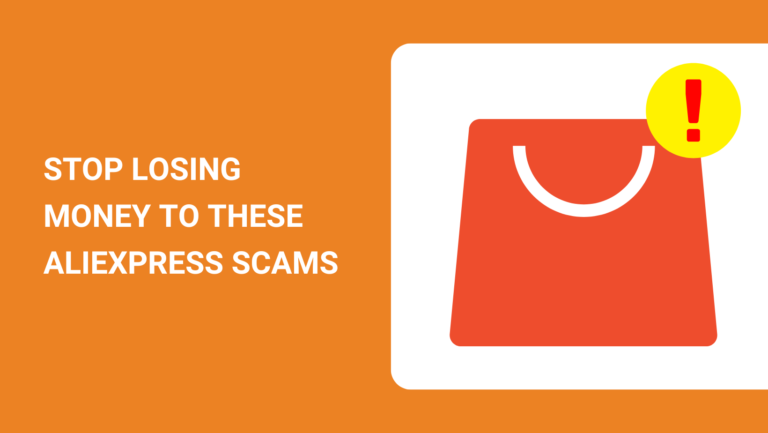

I have been a customer of AliExpress for many years. Buyer protection is in theory excellent, but in reality, it is the greatest scam! A couple of years ago I usually ended up with just judgements in disputes, but it took a lot of work. Now I rarely get any justice as they have changed dramatically and use return and refund instead of only refund. For me, the return cost is about $28, which is stupid for most orders and I end up paying a lot to end up with nothing. This is used by both sellers and the platform as blackmail. They might agree to your dispute but judging for a return knowing that it is just stupid to return the item as you will not get the money back. AliExpress lay almost all responsibility on the buyer and does nothing to stop plain fraud, dishonesty and lies, and there is a lot, and they are in reality protecting dishonest sellers. They recently changed both the dispute and appeal processes and they are now just a parody of justice! There are still decent shops on the platform, but if you end up with a dispute, you are very likely to not get your money back! Unless you are willing to lose your money and can accept that warranty, user rights and support are in reality close to zero, you should avoid AliExpress. eBay is much better, even if prices normally are higher!
AliExpress has changed recently, something is going on there, and it’s not good. They are now flooded with “stores” selling fake or extremely low quality versions of products. Years ago, I had very good experience with them, had made many purchases, but now, horrible experiences, will not go there again.
It seems they have abandoned any sort of quality or fraud control. Anyone can sell anything, and Aliexpress does not care, and they’ve made the dispute and refund process almost impossible to use.
Sorry, but that’s just how it is.
No, I’m not complaining about slow shipping and so on, I’m citing outright fraud, very obvious selling bogus products, the most recent being completely fake USB external drives that either didn’t work at all, or did not have anything even close to the advertised capacities
AliExpress is a hit and miss place, have been shopping more than 10 years, many items, so many orders… some good, some bad. Just recently, as of 2023 January, they have lots of sellers using fake USPS labels and the items get stuck in the postal office due to shipment fees not paid. The only way to get them out is to pay postage fees and it does not work always. If the buyer cannot get the items out of USPS and open a dispute on AliExpress, there is only half of the amount paid is refunded. So the buyer gets nothing and pays half the price plus the headache. My impression so far AliExpress and other Chinese venues is their serious issues with integrity. There might be some exceptions but there is a significant number of Chinese sellers who are dishonest and always keep an open eye to scam buyers if there is a possibility or a legal cavity. I am not sure if this comes from Chinese culture, government, perception of life or something else underlying, but honesty is a big piece is missing nowadays. And it is so unfortunate that they are the largest hardware and material supplier of the entire world.
I got disappointed by AliExpress recently. As per 2023, you will have problems to get your money back if the seller ships you whatever in a tracked mail.
Had it that I received a completely worthless different item instead of my order.
Ali just offers to refund if you return the product and pay insanely high shipping fees towards China. And I won’t count on the parcel to actually arrive and refund happens. Potentially the seller later claims that the returned product is not his and refuses further the refund based on this.
Shop itself was around many years and had relatively good ratings. Maybe situation is different for higher priced items where shipping costs are neglectable. I will try to avoid Ali as much as possible. Unfortunately, some products/electronic components are only available there as non-commercial buyer.
Some shops seem to offer “local returns”. That might be an option, but I have never tried.
Hi, I have similiar problems with AE.
I bought from 2 sellers LFP cells – of course new, of course grade A. But after testing it occured these are e-waste, old, used, worn cells. It was very difficult to get AE confirm the fault is the seller but they agreed I sent back the faulty cells on the seller expense. Of course I have to pay for the return shippment but they will pay me back.
The problem is both sellers do not intend to customs clearance the packages because they have to pay an extra tax and duties. So they never receive the return thus never confirm they get it. And it makes impossible to close the claim and get the shipping cost money.
EliExpress is a scam 🙁
I have just been deceived, the seller put a photograph of the product, and sent me a completely different one, Aliexpress is a place where scammers abound, it is not reliable, I prefer to pay a few dollars more on Amazon or Ebay, but I know that I will not be scammed and The products are quality products, what you see in the photograph is what arrives in your mail. I never will buy on Aliexpress again.
Aliexpress buyer protection has become fake this year. In the past I bought a lot from AE with really little problems which were always solved in a proper way. But now AE cooperates with fake shipping companies like Fardar that have fake hotlines and WA numbers and email addresses that are never answered. These companies forge Proof of delivery and then AE closes the buyers dispute without any evidence that parcel is actually delivered. They even do not disclose which shipping company they contacted for the Pod, how they contacted this company and who signed for the delivery. Everything they keep hidden that is very tricky. Only option is to contact your credit card company and try to get your money back. But then AE and buyer have been succesfull because they have the money without delivery the parcel !
Putting AliExpress up on a throne is a real false claim. Two out of my last four orders were delivered to the wrong address. After may nasty Emails from AliExpress following my refund request, They said my request was invalid. I lost all the money. This started when AliExpress went to PiggyShip delivery service. Piggyship provided a photo of the delivery location, which was not my house. When confronted with the evidence, both Piggyship and AliExpress told me to go to hell. Don’t buy from AliExpress if shipped by Piggyship. Don’t buy from AliExpress.
I bought an expensive product of a company Henan Canche Industries on AliExpress and the goods we received were not what we bought. The product was of extremely low quality, poor workmanship and to make it worse highly unsafe. I opened a complaint through their site, and they said they were going to get back to me, but I never heard back from them despite having contacted them multiple times. Later, I found they had closed my case without me knowing. Additionally, I sent AliExpress an extensive formal written complaint with all the evidence attached and never got a response. I followed up with another two emails and AliExpress chose to ignore me. I have lost US $22,000 and no one can help. Buyer beware do not buy from AliExpress or HENAN CANCHE INDUSTRY CO. LTD!